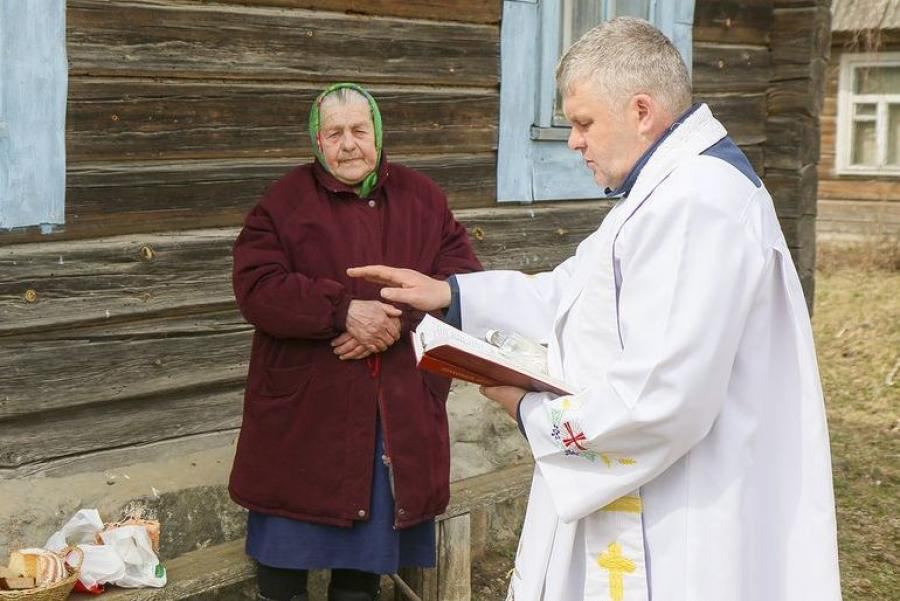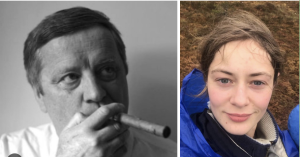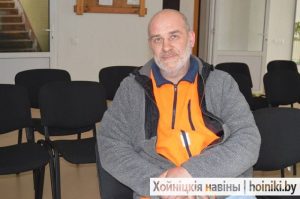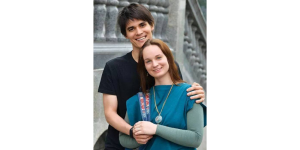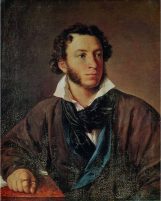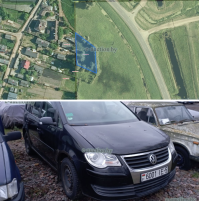Forum 18. BELARUS: Fined for river baptisms, fined for private garden baptisms
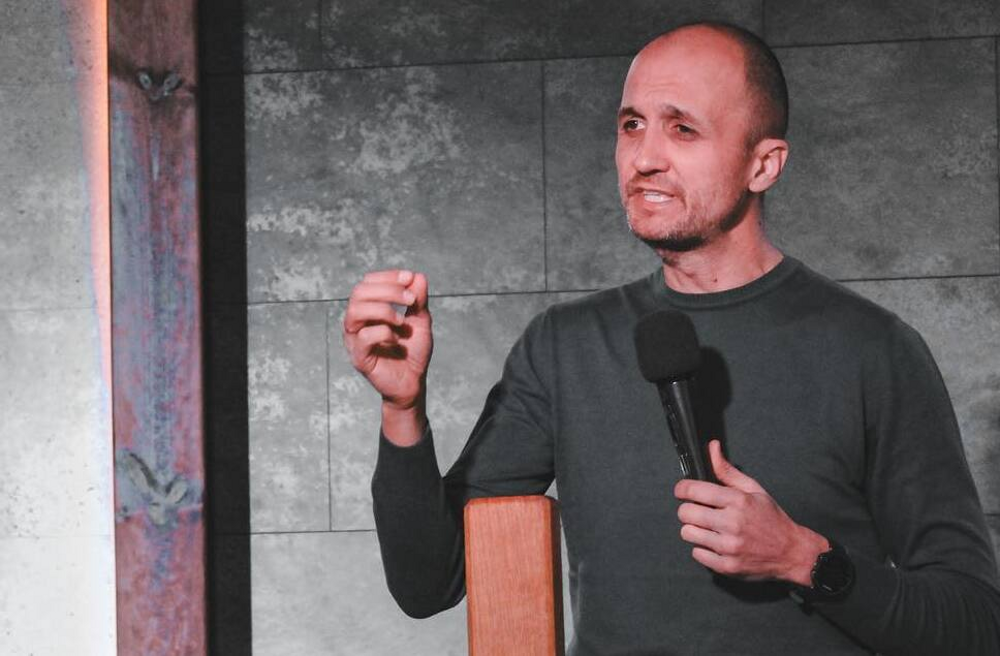

Organisation"Forum 18"
Норвежская организация, целью которой является содействие религиозной свободе.
5 August 2022
Felix Corley, Forum 18
Without facilities at Gomel’s Living Faith Church, Pastor Dmitry Podlobko held river baptisms in late 2021 without state permission. He was fined two days’ average wage and his Church was warned. So he held baptisms in July 2022 in his garden. Police summoned him and a court fined him two weeks’ average wage. Asked whether Podlobko would have been punished had he and his friends been swimming, Police Chief Vasili Kravtsov responded: “They weren’t swimming in the pool. This was a religious ritual. They are completely different.”
On 28 July, a court in the south-eastern city of Gomel fined Protestant Pastor Dmitry Podlobko two weeks’ average wage for holding outdoor baptisms earlier in July in a pool on family-owned property without seeking official approval. This is his second fine within a year to punish him for conducting baptisms.
Captain Vasili Kravtsov, head of Gomel District Police which prepared the case against Pastor Podlobko, insisted that he had violated the law. “Before conducting any religious rituals you need to ask permission from the local Executive Committee,” he told Forum 18. “He didn’t have such permission. This is the law and I am obliged to carry it out.”
Asked whether Pastor Podlobko would have been punished had he and his friends simply been swimming in a pool on his family-owned property, Captain Kravtsov responded: “They weren’t swimming in the pool. This was a religious ritual. They are completely different” (see below).
After the 2021 fine, Gomel District Executive Committee sent Pastor Podlobko’s Living Faith Church an official written warning about violations of the law. He fears that any second warning within a year might lead to more serious consequences for the church (see below).
If a religious community repeats a “violation” within a year, the regime’s senior religious affairs official, Plenipotentiary for Religious and Ethnic Affairs Aleksandr Rumak, can apply to court for the religious community to be stripped of its legal status (and thus its right to exist). Many decisions – especially those by the Plenipotentiary – cannot be legally challenged (see below).
Organisers of public events (including religious events) need to get approval from local Executive Committees if they plan to hold them anywhere apart from places approved by local authorities, such as churches, cemeteries, crematoria and pilgrimage sites. Such permission is often refused for events the authorities do not like. Examples of such events which took place without state permission include demonstrations against election fraud and opposition to the renewed invasion of Ukraine (see below).
Andrei Aryaev, Head of the Religious Affairs Department at the Plenipotentiary’s Office in Minsk, said he had no information about any punishment handed down to Pastor Podlobko. “If a decision was taken, it was appropriate,” he told Forum 18. He insisted that all religious events away from registered places of worship and other state-approved locations – including on private property – must have permission from local Executive Committees. Asked why, he responded: “That’s the law” (see below).
After Minsk’s New Life Pentecostal Church was evicted by the regime from its building, officials warned the Church that continuing to meet for worship in the car park of their seized church in Minsk could lead to administrative or criminal prosecution (maximum punishment four years’ imprisonment). The Church vowed to continue its worship. City and state religious affairs officials refused to discuss the threats with Forum 18 (see below).
For events that do get Executive Committee approval, fees set by the state – payable in advance – are required for police, medical workers, cleaners, and other services. Some communities do not attempt to hold public events or apply for state permission for them, because of the detailed information and high costs the regime demands (see below).
Living Faith Church says it cannot afford such high costs. So after being punished for holding baptisms in 2021 in a river, Pastor Podlobko decided to hold baptisms in 2022 on private property, but was fined anyway (see below).
Other freedom of religion or belief violations
Since 2020, the regime has punished many individuals for exercising freedom of religion or belief in relation to election fraud, protests against Russia’s renewed invasion of Ukraine, and the regime also denies freedom of religion or belief to many political prisoners.
Other freedom of religion and belief violations include in March 2022 denying Minsk’s Pomore Old Believers building permission for a church they have been struggling to build since 1998. Minsk District Executive Committee Head Vladimir Yurgevich claimed it was “inexpedient”, and that completed building plans were not lodged by an August 2021 deadline. The community insists no such deadline was mentioned during meetings with officials in 2021 and 2022. They think officials consulted the Belarusian Orthodox Church before rejecting the plans. The regime often creates property problems for religious communities it dislikes.
Also, a Jehovah’s Witness Dmitry Mozol was fined four months’ wages in February 2021 for refusing to undergo nearly four weeks of reservist military training on grounds of conscience. He failed to overturn the criminal punishment on appeal. He has appealed to the United Nations Human Rights Committee.
Punished for baptisms on public property
Pastor Dmitry Podlobko leads Living Faith Church in the south-eastern city of Gomel, a registered congregation of the Full Gospel Union. As his church has no place for baptisms, he decided to hold baptisms in October 2021 in a local river. “It was very cold,” he told Forum 18, “but we had no other options. And the young people insisted that I baptise them in the river.”
In November 2021, Gomel’s Central District Court fined Pastor Podlobko for conducting a public event without state permission under Administrative Code Article 24.23 (“Violation of the procedure for organising or conducting a mass event or demonstration”). The Judge fined him 2 base units or 58 Belarusian Roubles. This represents about two days’ average wages.
“I believe that the Judge recognised the absurdity of the situation and even mentioned that my activities were obviously socially useful,” Pastor Podlobko told Forum 18. He believes this is why the Judge punished him at the lower end of the range of punishments.
However, Gomel’s Central District Court sent a copy of its decision on Pastor Podlobko to Gomel District Executive Committee. It then issued Living Faith Church with a written official warning about violating the law. “As I’m the pastor of a church, it turns out that the church is also a law-breaker,” Pastor Podlobko told Forum 18.
Punished for baptisms on private property
Because of the 2021 punishment, Pastor Podlobko decided to hold baptisms in July 2022 in the garden of a house his family owns. “You have to pay large amounts for all the different services,” he told Forum 18. “So we decided not even to apply to the authorities for holding a baptism in a public place in the river, as it would have been too expensive for us and there’s no reason to have to pay someone else to be able to pray for 13 people and baptise them.”
Pastor Podlobko held the baptisms on 9 July 2022 in a pool in the garden of the house, with those present as his guests. He believes someone gave information to the police.
On 27 July, Police ordered Pastor Podlobko to attend Gomel District police station at 9 o’clock the following morning. Officers accused him of holding the outdoor baptisms on his family’s property on 9 July without the required official approval.
“The Apostles were likewise banned from preaching in the name of Jesus Christ and baptising people,” Pastor Podlobko noted on his Telegram channel on 27 July. “For this they were persecuted and even punished.” He vowed to continue preaching and baptising people “in any place where it is needed and possible”.
Once at the police station, Pastor Podlobko noted on his Telegram channel, officers drew up a record of an offence against him under Administrative Code Article 24.23 (“Violation of the procedure for organising or conducting a mass event or demonstration”).
“When I was at the police station,” Pastor Podlobko noted after the trial, “they informed me that the court could hand me a short-term jail term. I responded jokingly that people in prison also need a pastor, even though I took seriously the possibility and was ready for it.”
Officers took Pastor Podlobko directly from the police station to Gomel District Court. That same day, the Judge fined him the minimum for a second-time “offender” under Administrative Code Article 24.23, 20 base units or 640 Belarusian Roubles. This represents about two weeks’ average wages. He decided not to appeal as “there is no point”, he told Forum 18.
Pastor Podlobko fears that the Executive Committee might issue Living Faith Church with a second official warning. If a religious community repeats a “violation” within a year, the regime’s senior religious affairs official, Plenipotentiary for Religious and Ethnic Affairs Aleksandr Rumak, can apply to court for the religious community to be stripped of its legal status (and thus its right to exist). Many decisions – especially those by the Plenipotentiary – cannot be legally challenged.
“Now we have to pray that our Church won’t have further problems and consequences in future apart from the fine, which I will have to pay.” Pastor Podlobko also asked for prayers for his Church.
After initially denying that anyone had been punished for exercising freedom of religion or belief on private property, Captain Vasili Kravtsov, head of Gomel District Police, confirmed that his officers had summoned Pastor Podlobko, drawn up a record of an offence and handed the case to court.
“He violated the law,” Captain Kravtsov told Forum 18 on 4 August. “Before conducting any religious rituals you need to ask permission from the local Executive Committee. He didn’t have such permission. This is the law and I am obliged to carry it out.”
Asked whether Pastor Podlobko would have been punished had he and his friends simply been swimming in a pool on private property, Captain Kravtsov responded: “They weren’t swimming in the pool. This was a religious ritual. They are completely different.”
When Forum 18 pointed out that Pastor Podlobko had been conducting the baptisms on his family-owned property, Captain Kravtsov claimed: “He wasn’t registered at that address.”
Pastor Podlobko disputes this. He told Forum 18 that he, his wife and their children are all registered to live at the property.
Andrei Aryaev, Head of the Religious Affairs Department at the Plenipotentiary’s Office in Minsk, said he had no information about any punishment handed down to Pastor Podlobko. “If a decision was taken, it was appropriate,” he told Forum 18 on 5 August. “I can’t comment on court decisions.”
But Aryaev insisted that all religious events away from registered places of worship and other state-approved locations – including on private property – must have permission from local Executive Committees. Asked why, he responded: “That’s the law.”
Earlier problems for Living Faith Church
In October 2007, officials summoned Pastor Podlobko to Gomel’s Soviet District Public Prosecutor’s Office, where they told him the church’s meetings were “illegal” as they took place in his privately-owned house which was not registered as a place of worship.
In February 2009, police detained two Danish citizens who were attending (but not leading) a service at Living Faith Church. They were then ordered deported.
High fees for permitted public events
New Life Church outdoor worship in church car park, Minsk, 29 August 2021
Organisers of public events (including religious events) need to get approval from local Executive Committees if they plan to hold them anywhere apart from places approved by local authorities, such as churches, cemeteries, crematoria and pilgrimage sites. Such permission is often refused for events the authorities do not like. Examples of such events which took place without state permission include demonstrations against election fraud and opposition to the renewed invasion of Ukraine.
After officials evicted Minsk’s New Life Pentecostal Church from its building in February 2021, officials warned the Church that continuing to meet for worship in the car park of their seized church in Minsk could lead to administrative or criminal prosecution (maximum punishment four years’ imprisonment). The Church vowed to continue its worship each Sunday. City and state religious affairs officials refused to discuss the threats with Forum 18.
For events that do get Executive Committee approval, a January 2019 Council of Ministers Decree set fees – payable in advance – for police, medical workers, cleaners, and other services. Some communities do not attempt to hold public events or apply for state permission for them, because of the detailed information and high costs the regime demands.
In July 2019, at the last minute, Greek Catholic Church leaders had to cancel what would have been their 25th annual pilgrimage from Vitebsk to Polotsk because of “unaffordable” police fees. The fee demanded would have represented one day’s average pay for each of the up to 100 expected participants, plus fees for health provision and cleaning along the route.
Holding public events is very difficult. Many human rights and opposition activists interpreted the January 2019 Council of Ministers Decree imposing the high fees as a further measure to obstruct public events not organised by the authorities.
Public religious events continue – despite high fees
Other religious communities have been able to hold public religious events after gaining official permission and paying the fees.
Catholics often hold processions around the streets, for example on the feast of Corpus Christi, or hold pilgrimages to holy sites. On 3 August, about 90 Catholic pilgrims set off on a three-day walking pilgrimage from the northern town of Druya to Rositsa, to commemorate two priests and many laypeople murdered in Rositsa by the Nazis in 1943.
“Our dioceses have had to pay all the fees [for such events], for police, healthcare and cleaning services,” Catholic spokesperson Fr Yuri Sanko told Forum 18 on 3 August. “As you have to pay everyone, it ends up as a lot of money.”
Source: Forum 18



